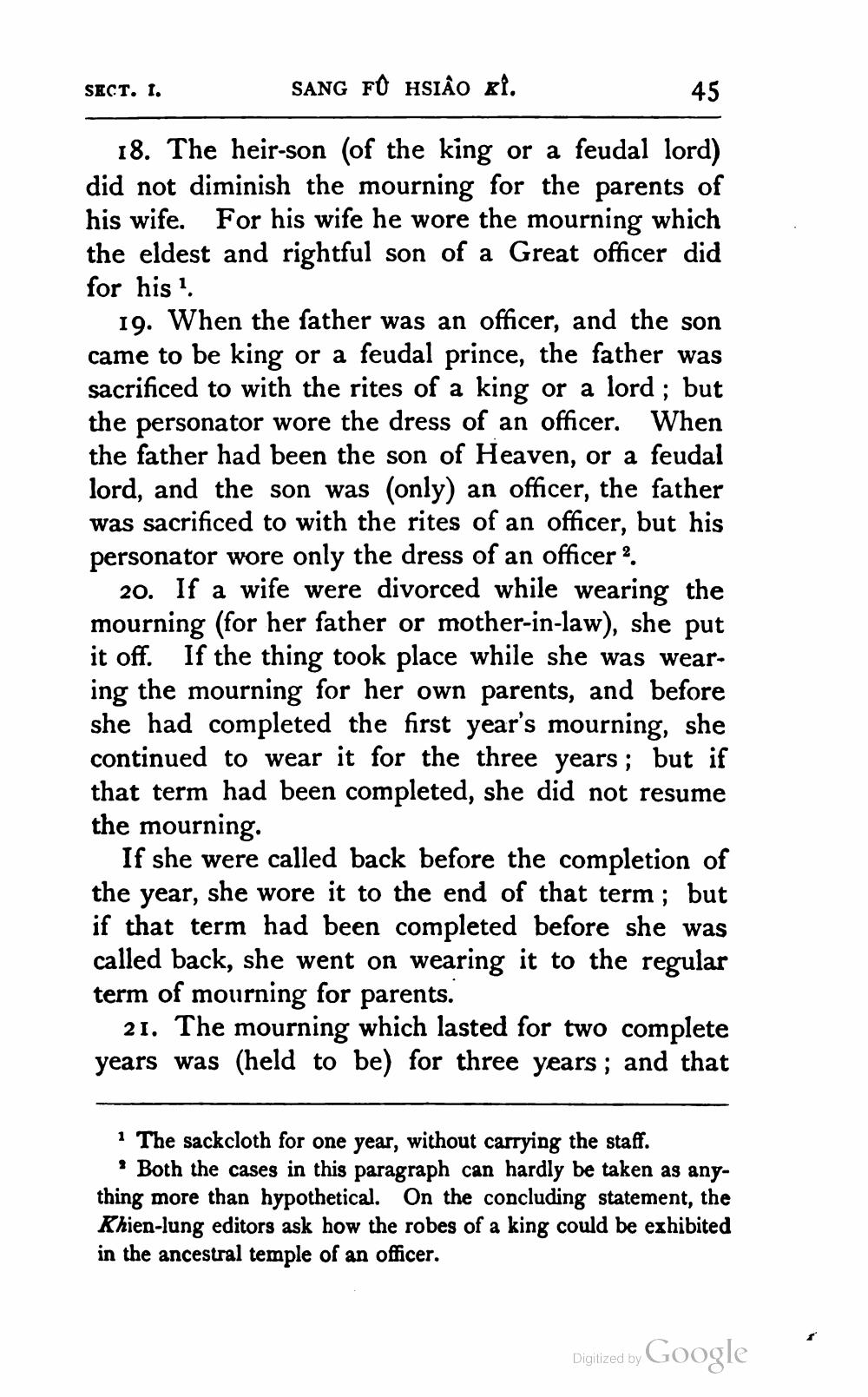________________
SECT. I.
SANG FU HSIÂO xi.
45
18. The heir-son (of the king or a feudal lord) did not diminish the mourning for the parents of his wife. For his wife he wore the mourning which the eldest and rightful son of a Great officer did for his 1
19. When the father was an officer, and the son came to be king or a feudal prince, the father was sacrificed to with the rites of a king or a lord ; but the personator wore the dress of an officer. When the father had been the son of Heaven, or a feudal lord, and the son was (only) an officer, the father was sacrificed to with the rites of an officer, but his personator wore only the dress of an officer 2.
20. If a wife were divorced while wearing the mourning (for her father or mother-in-law), she put it off. If the thing took place while she was wearing the mourning for her own parents, and before she had completed the first year's mourning, she continued to wear it for the three years; but if that term had been completed, she did not resume the mourning.
If she were called back before the completion of the year, she wore it to the end of that term; but if that term had been completed before she was called back, she went on wearing it to the regular term of mourning for parents.
21. The mourning which lasted for two complete years was (held to be) for three years; and that
1 The sackcloth for one year, without carrying the staff.
• Both the cases in this paragraph can hardly be taken as anything more than hypothetical. On the concluding statement, the Khien-lung editors ask how the robes of a king could be exhibited in the ancestral temple of an officer.
Digitized by
Digitized by Google




